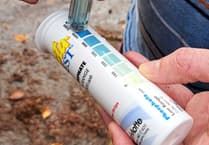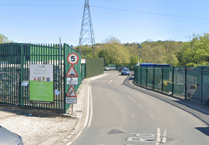In our journey to use less plastic and be more environmentally friendly, we often come up against issues that are far from straightforward, writes David Hutton.
One of the thorny questions is whether plastic bags or paper bags are better for the environment. Many people may imagine that paper is greener but its manufacture involves huge amounts of water and more energy than plastic bags.
Supermarkets and other businesses switching to paper bags are driven more by consumer perception than science.
The Government’s own Environment Agency’s 120-page report suggested that paper bags had to be used four times before their impact on the climate was lower than a plastic bag. However, this research did not consider the effects of littering, or adverse impacts of degradable polymers in the recycling stream. The research looked at ‘paper carriers’, not the more commonly used paper bags for smaller items, hence the claim about re-using them. Incidentally, the same report found that for a cotton bag to reduce its impact on climate change, it had to be re-used well over 100 times.
Interestingly, this research was before 2016, when the UK still had a Department of Energy and Climate Change! What short memories we have.
Plastic bags are re-cyclable, though few people do so as it involves taking them to a large supermarket rather than putting them in the home recycling bin. Studies often assume plastic bags are used twice, once to carry produce home and once as a bin liner, but in 2014, it was estimated every household in the UK had an average of 40 plastic single-use shopping bags. Plastic bags are cheap and their production is low-carbon compared to paper bags. However, they are made from non-sustainable fossil fuel and last for generations in the environment. It certainly seems insane to continue to use the flimsy plastic bags that take between 400 and 1,000 years to decompose for the mere 20 minutes or so it takes to drive home, empty the contents into the fridge or bowl and throw the bag away.
Manufacturing a paper bag takes about four times as much energy as it takes to produce a plastic bag, plus production creates additional harm to the environment and they are more expensive to transport. However, paper is easily recyclable, in Teignbridge at least, in home recycling bins. Paper bags are potentially totally sustainable and planting trees has enormous benefits for locking up carbon from the atmosphere, and biodiversity. And of course, a paper bag quickly biodegrades and does not litter our oceans and beaches for hundreds of years, is less harmful to wildlife.
Regardless of what your bag is made of, the most sustainable choice is the bag you already have. Don’t be tempted to throw out plastic bags for paper or linen alternatives! Too many ‘bags for life’ are used just once and although the introduction of charges for so called ‘single-use’ bags has reduced their consumption by 95 per cent in England, too few are reused. It is clear that using your bag as many times as you can and disposing of it responsibly reduces its impact on the environment. Paper or plastic? The answer should be ‘Neither... I brought my own.’




